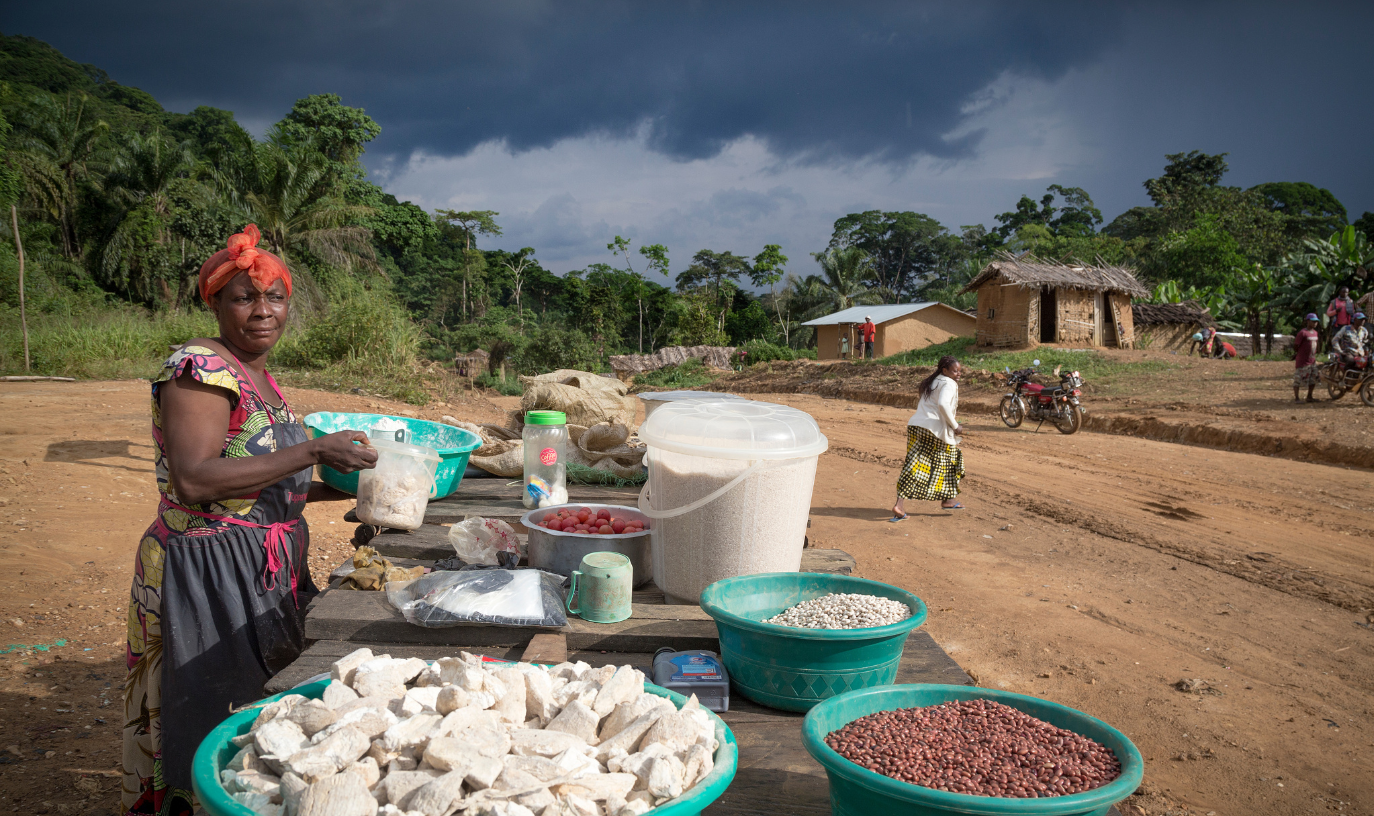Gender and responsible sourcing are increasingly tied together, ensuring that the extraction of subsoil riches benefits all members in communities often dominated by patriarchal ideas. While women are a large part of the workforce in artisanal mines and perform critical tasks, they still struggle to achieve economic, social, and political recognition in mine sites and communities.
Democratic Republic of Congo (DRC) supplies 70 percent of the world’s cobalt, a mineral considered critical by the United States, the European Union, and Canada as it powers batteries needed for the green transition away from fossil fuels. 10 to 22 percent of DRC’s cobalt is extracted by artisanal miners. It is found in electric vehicles’ batteries, jet engines, or everyday high-tech gadgets.
DRC’s cobalt industry provides work for 150,000 to 200,000 artisanal miners. Research found that in DRC, women represent up to 30 percent of the workforce in the tin, tungsten and tantalum sector and 50 percent in gold. There are no reliable numbers for the number of women artisanal miners working in the cobalt sector. However, there are multiple civil society and media reports of women undertaking diverse tasks at DRC’s cobalt mine sites.
Larger attention has been on the amount of child labour in DRC’s artisanal cobalt miners. In 2014, UNICEF found that around 40,000 children were involved in cobalt mining in the region. The sector has been under even more scrutiny since the 2016 Amnesty International and Afrewatch report, which found multiple instances of child labour and linked them to global brands. How do we address child labour in DRC’s cobalt sector? What—if any—is the role of gender equality and women’s empowerment in tackling this issue? IMPACT’s Her Security project embraces a holistic approach to women’s rights, child labour, and artisanal mining in the Lualaba Province of southern DRC. We’re diving into research that to date has only been anecdotal, exploring the links between improving women’s security and reducing child labour.
A gendered security approach in artisanal cobalt mining
Women in artisanal mining have long been excluded from the wealth that the sector provides. Most often a poverty-driven activity, artisanal and small-scale mining (ASM) brings higher wages than other subsistence work, and can also be described as entrepreneurial. Profits come quicker in ASM than activities such as agriculture or small-businesses. However, with deeply rooted cultural beliefs, women are often excluded from accessing this wealth while still being the primary caretakers for the households and children.
Her Security acknowledges this reality and proposes innovative research to inform women’s ability to secure a healthier livelihood in the hopes of decreasing the occurrence of child labour. By focusing on women’s security—including their economic, physical, and energy security—IMPACT will address core components of the gendered experience at mine sites and in artisanal cobalt mining communities.
The unequal distribution of revenues from ASM along gender lines has been identified as a barrier to gender equality in the sector for a long time. IMPACT conducted research in Central Africa on gender inequality in the conflict minerals sector. Our findings were corroborated by others, including in West Africa’s gold artisanal industry. In Guinea for example, women receive 1/8 of the value of the production despite playing a critical role in cleaning, sorting, and sometimes transporting the minerals. As in-depth research is lacking in DRC’s cobalt industry, Her Security will provide the needed evidence informing strategies, policies, and approaches by a wide range of actors.
Economic exclusion is not the only issue at stake. Securing access to energy, in particular electricity, has immense security and health benefits for women. In a region where charcoal is the most common source of household cooking, its impacts on women’s health is devastating. In many African contexts, research has tied women’s respiratory syndromes to the use of charcoal. On the environmental side, cutting trees in a highly sensitive climate and in mining-affected areas, limits the areas resilience against climate change, and increases hardships for the community and in particular for women.
Finally, physical security is affected by other types of security. Access to electricity, including public lighting, allows for a more secured environment and has shown to decrease incidents of harassment and sexual violence. Electric stoves provide significant benefits for women’s health, and cuts the need to travel from secure areas to find wood. Better economic standing also improves women’s access to safer housing and everyday products, while shielding them against potential economic shocks.
Decreasing child labor through women’s security
The Her Security project builds on IMPACT’s preliminary hypothesis, linking improvement in women’s security (such as economic, physical, energy) and the levels of child labour. We believe that enhancing women’s ability to earn a living will directly impact the need to rely on children’s income for the household. Beyond improving household livelihoods, the role that energy and physical security play in a community is critical to ensuring that children avoid working in mines and redirects them to school.
As children in DRC receive only 4.5 years of Learning Adjusted Years of School, which is calculated based on the average time spent in school and the quality of education, enhancing schooling has become central to improving generational livelihoods.
Building on years of work in artisanal mining and gender inequalities, as well as with a deep engagement with our in-country partner, Bon Pasteur Kolwezi, this project will pave a new approach to address child labour in supply chains and support women’s empowerment.

